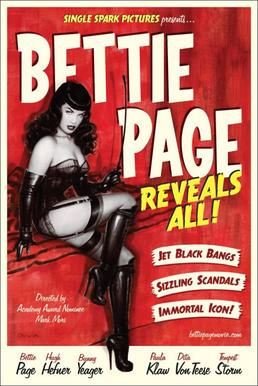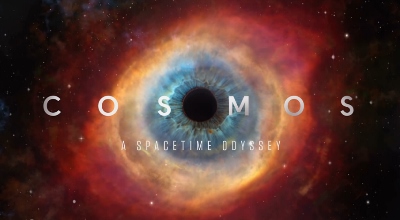PsychoQuad Goes to the Movies: The Power of Sex, Bettie Page and Art Overthrow Psychiatry
Over the decades, I have had the good fortune to be immersed in what many of us call Mad Culture. In various cities, at a number of events, there would be a confluence of writers, researchers, artists, and otherwise creative people who all wanted to peacefully overthrow the psychiatric industry and find a new way of helping people in crisis. I am glad to hear that one of your chances for Mad Culture will be from October 9-12, 2014 in Massachusetts, because the Mad In America International Film Festival will bring many film titles and speakers together. In fact, I have been invited to speak for a few minutes via Skype near the end of this great event.
I wish I could be there physically, but in honor of this Mad film event, here are some movies that I have watched lately, along with my brief review.
 Bettie Page Reveals All (2012, Documentary, 101 min., via Netflix streaming)
Bettie Page Reveals All (2012, Documentary, 101 min., via Netflix streaming)
That’s right, one of the main pin-up personalities from the 20th century was a psychiatric survivor. Bettie Page was famous as a charismatic and sexual model whose images are still admired long after her death. This documentary reveals that from 1979 to 1992, after the height of her fame, Bettie Page was in psychiatric institutions in California.
This film is mainly a lot of fun, showing her history and how she became one of the leading underground characters in Americana. In fact, she may be more popular today than in the 20th century. There is a very sad part of this story though, because Bettie Page was a trauma survivor, her childhood was awful, she experienced abuse as an adult, and the men in her life were mainly negative. When Bettie retires down in Florida, her past seems to catch up with her and she ends up having a major mental crisis.
You can watch this documentary on Netflix and I highly recommend it. Bettie Page is a fascinating person, and you can get some insight into how our society misinterprets trauma as “mental illness.”
 Dr. Bronner’s Magic Soapbox (2006, Documentary, 88 min.)
Dr. Bronner’s Magic Soapbox (2006, Documentary, 88 min.)
When you are in a natural health food store, maybe you have noticed this strange soap container that has writing all over it about fruit trees and religion and calls to dilute, dilute, dilute. The man who was behind this bizarre product was a psychiatric survivor, who experienced forced electroshock. This documentary follows the life of this eccentric genius, and shows us his family who are keeping up his legacy many years after his death.
For many years I thought Dr. Bronner was a survivor of Nazi concentration camps, because that is how he describes his past. This documentary reveals that he received his forced electroshock in Illinois, and from then on he would describe that experience as being like he was in a concentration camp.
I have written to his family to make sure that they know there are many survivors of electroshock who are speaking out all over the world. I highly recommend this documentary.
Hidden Pictures (2013, Documentary, 60 min.)
 At first I was very excited about this documentary. I was invited to speak at the premier here in Eugene, put on by some of my friends who show movies about various progressive topics. Much of the film interviews people with psychiatric labels from poor areas of the world, such as China and India. During my own activism to fight the globalization of the mental health corporations, I have spoken with poor psychiatric survivors in Ghana, Ukraine, Turkey, Mexico, and Chile. Unfortunately, the documentary does not go deeper. For instance, the filmmaker totally ignores two major studies by the World Health Organization that show that your best chance for recovery following a diagnosis of schizophrenia is in poor countries with the fewest psychiatrists. Why is that? This film endorses the main mental health system, and I listened carefully to the film when they promote the biological medical model in mental health.
At first I was very excited about this documentary. I was invited to speak at the premier here in Eugene, put on by some of my friends who show movies about various progressive topics. Much of the film interviews people with psychiatric labels from poor areas of the world, such as China and India. During my own activism to fight the globalization of the mental health corporations, I have spoken with poor psychiatric survivors in Ghana, Ukraine, Turkey, Mexico, and Chile. Unfortunately, the documentary does not go deeper. For instance, the filmmaker totally ignores two major studies by the World Health Organization that show that your best chance for recovery following a diagnosis of schizophrenia is in poor countries with the fewest psychiatrists. Why is that? This film endorses the main mental health system, and I listened carefully to the film when they promote the biological medical model in mental health.
I give this film a big thumbs down. Making it worse, during the premier here in Eugene, well-meaning progressive people invited a panel to speak. About half a dozen mental health organizations were represented, with me, PsychoQuad, as a token psychiatric survivor. Could you see progressives inviting mainly white groups to comment on a Black movie? And could you see these progressives putting on a token person of color before the movie so they have no chance to comment on the flick? Tokenization is a common issue and it was unfortunate to be put in that position. Many progressive people get caught up in event planning and do not question the big picture or go deeper. I am pro-choice about taking psychiatric drugs, but do we really want to put hundreds of millions more people around the world on psychiatric drugs?
 Cosmos: A Spacetime Odyssey (Documentary, 2014, Season 1, 13 episodes, via Netflix streaming)
Cosmos: A Spacetime Odyssey (Documentary, 2014, Season 1, 13 episodes, via Netflix streaming)
I missed the original Cosmos years ago when Carl Sagan narrated his show with the famous catch line, “Billions and billions and billions!” but I love science shows, so when this new version was created with state-of-the-art graphics, I had to get it. Now, some of you in the Mad Movement may be saying, “Hey, PsychoQuad, this does not seem to have to anything to do with mental health!” In a recent blog, I talked about global warming and mental health, and I was very surprised at the number of negative comments in my Mad in America re-distribution. Some people disputed the scientific fact of global warming. Others felt I should “stick to my knitting,” and not talk about stuff that seemed off topic. In terms of needles, my experience was being on the sharp end of a hypodermic, but I get the point, if you will pardon the pun!
This show has one of the best descriptions of global warming I have ever seen, and to give everybody some hope please note that this series was first aired on Fox. Let me repeat that, this series was first on Fox, and it is one of the best explanations of global warming, ever! Now, hopefully mental well-being encompasses taking care of the only planet we ever have known! Human-caused global warming is a fact, and those who disagree should see this flick.
Another episode explains how one of the worst human-caused brain impairments in history is directly connected to environmental destruction and took decades to resist. I am talking about the little-known problem that lead was added to gasoline for decades, and a so-called scientist with financial ties to the oil industry delayed our taking collective action for generations by sowing doubt about the harm of lead to the brain. This is a good lesson for us all, because the same thing is happening now with climate crisis.
One of the first episodes celebrates the life of the heretic, Giodano Bruno, who readers of this blog know my grandfather loved. Giodano was one of the first people to see other stars as like our sun, years before the telescope was available. Another episode explores the life of Edmond Halley, who was a genius scientist behind publishing Newton’s Principia, and who by the way was a direct ancestor to one of my ex-employees, a psychiatric survivor.
I have already watched this series twice, and give it my highest recommendations, though I do wish the basics of quantum theory mystery via the two slit experiment had been explained because this strangeness puts us all in the camp of the perplexed.

David Heine, filmmaker
Care Farms of the Netherlands (Documentary, 2012, 28 min.)
There is a phenomenon, mainly in Scandinavian countries, that when a young person is troubled by mental problems or drug addictions they can be placed on a family-owned small farm for a number of months for their recovery. They become closer to nature, they are often absorbed by a caring family, they have regular chores, and the data show good results. My friend, David Heine, made a documentary about this topic, as did another filmmaker friend Daniel Mackler.
David commutes back and forth from Amsterdam to here, in Eugene. I liked his film, but it has not yet been premiered here in Eugene and we sure hope it is soon. You can find out more about this documentary on its website, http://www.carefarmsfilm.com/. David has made hundreds of documentaries on many topics, but you might recognize his work in mental health from the super documentary Little Brother, Big Pharma. David was personally impacted by the drug-loving mental health system because his brother has been heavily drugged for decades in psychiatry, and the family is on the lookout for alternatives.
Where’s The Evidence?: A Challenge to Psychiatric Authority (Documentary, 2014, 33 min., premiering at the Mad in America festival)
Filmmaker Beverly Jones captured the highlights of the 2003 hunger strike, called the Fast for Freedom in Mental Health. Her husband Mickey Weinberg was the chief organizer as a bunch of us stopped eating solid food in a challenge to the American Psychiatric Association (APA). We simply asked for proof about the so-called biological basis of what is called mental illness. To their credit, APA responded to our points, but their reply was very shallow. The film clearly shows how our scientific panel demolished the APA in a written debate.
My understanding is that the film festival will be the premier for this film. Congratulations! The Fast for Freedom is still impacting the mental health system, for example, a number of books refer to the debate. The only flaw I see in the movie is that I think we should be more clear about the win that we experienced. As the film explains, we identified reaching mainstream media as a goal, such as the BBC interview featured in the film and the news conference covered by various media including the local outlet for National Public Radio (NPR). What should be more obvious for film-goers, is that we also reached the Washington Post and eventually the LA Times Sunday Magazine. Not too shabby! The usual Washington Post reporter about mental health topics back then was Shankar Vendatam, who I had met with personally in Geneva and San Francisco. Shankar told me later he would not have covered the hunger strike, but thank goodness he was on his August vacation then! You might hear Shankar on NPR, during his regular segment Hidden Brain, where he continues to ignore how poor people are hurt by mental health over-drugging, as he covers fascinating stories about the middle and upper class. I guess the poor have the real hidden brains!
 Cesar Chavez (Biopic, 2014, 104 min.)
Cesar Chavez (Biopic, 2014, 104 min.)
I can hear some readers say, “What does this labor leader have to do with mental health?” Well, I guess the next time you eat, you might wonder about how food affects your mental well-being. Seriously, I was very eager to see this basic movie about activism, because there is a huge lesson for the Mad Movement. If Cesar Chavez and his co-revolutionaries had focused on mild reform instead of major upheaval, and if Cesar Chavez and his friends had gotten a lot of money from the federal system, then what kind of grape boycott would that have been?
Cesar and thousands of labor organizers recognized that struggle involves non-violent resistance in the streets, turmoil and solidarity. Cesar’s victory did not start with a government grant. Please, I beg many people in our movement, including many of my fellow bloggers in Mad in America, to study Cesar’s activism. There is a role for reform, for professionals, and even for government-funding, but that role is to support and not supplant ferment from the grassroots, independent part of the movement.
In Cesar’s public appearances with Senator Bobby Kennedy, such as when he broke a long fast alongside Bobby, obviously Cesar recognized that he needed an inside-outside strategy. Our movement should watch this flick because we apparently need a reminder that there is an outside!
Please attend the Mad in America film festival
If you know anyone who lives anywhere on the East Coast I hope you will tell them about this Mad movement celebration of the power of cinema to help peacefully overthrow the mental health industry. Here is the link for more information, including dozens of movies about changing psychiatry: http://madinamericainternationalfilmfestival.com/
A few years ago, I helped create a brief guide to holding a small film festival, because here in Eugene we found that munching snacks and drinking soda made watching even the heaviest topic a fun activity when we went to the movies. In terms of grassroots activities, showing good movies about our topic packed in people on a consistent basis. I include a few movies you can get, such as the amazing series of videos by Daniel Mackler:
http://www.mindfreedom.org/kb/mental-health-arts/mad-films-movies/mad-movie-festival


0 Comments
Trackbacks/Pingbacks